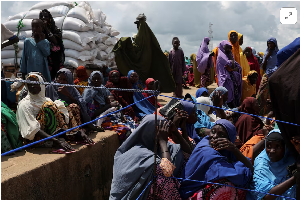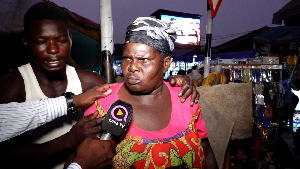Kumasi, April 1, GNA - Panellists at a climate change forum in Kumasi have warned of severe consequences in food production in developing countries if efficient and effective adaptation methods were not introduced to mitigate the effects of human activity on the climate. The experts and academicians in climate science and meteorology, warned that agricultural production was likely to be severely affected as a result of flood, increasing warm temperatures and rises in sea levels, which were the consequences of climate which could cause severe famine in some developing countries including Ghana in future. The forum under the theme "Stakes, Strategies, Proposals and Means for a Contextual Approach" was aimed at generating a clear understanding of climate change towards a contextualised approach for managing it. It was organised by French Embassy in Ghana in collaboration with Kwame Nkrumah University of Science and Technology (KNUST), University of Ghana (UG) and University of Cape Coast (UCC).
Professor Leonard Amekudzi of Department of Physics at KNUST, speaking on the topic "Climate Change-Reality or Myth" said climate change was a serious threat to developing nations and stressed the need for people to change their attitude towards the environment. He said some current diseases in the country could be attributed to the effects of climate change and stressed the need for the establishment of a body to educate the public on the effects of climate change.
Dr Samuel Nii Arday-Codjoe of Regional Institute of Population Studies, University of Ghana, said agricultural production would be severely affected by climate change in the country. Professor John Blay of Department of Fisheries and Aquatic Science of UCC, said rises in sea levels, coastal erosion, intrusion of salt water into coastal fresh water and others, which were currently being experienced in coastal areas in the country as a result of climate change, were impacting negatively on the poor communities in the coastal areas.
He said climate change had led to a significant loss of coastal biodiversity and this had increased the poverty levels of local dwellers.
Professor Kwasi Kwafo Adarkwa, Vice Chancellor of KNUST, said as a developing country, Ghana needed to step up efforts to fight climate change.
He said KNUST had began a new programme in meteorology and climate science at the Department of Physics and efforts were being made to start similar programmes at the Master's level as part of its contribution towards finding solution to climate change.
General News of Wednesday, 1 April 2009
Source: GNA
Climate change could affect food production - Panellists
Entertainment











